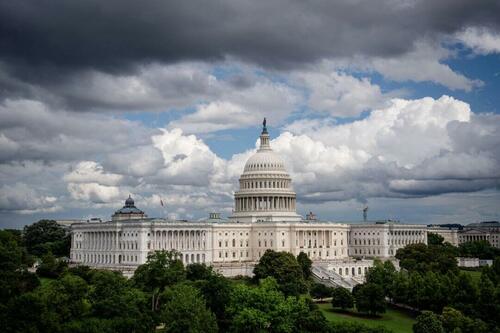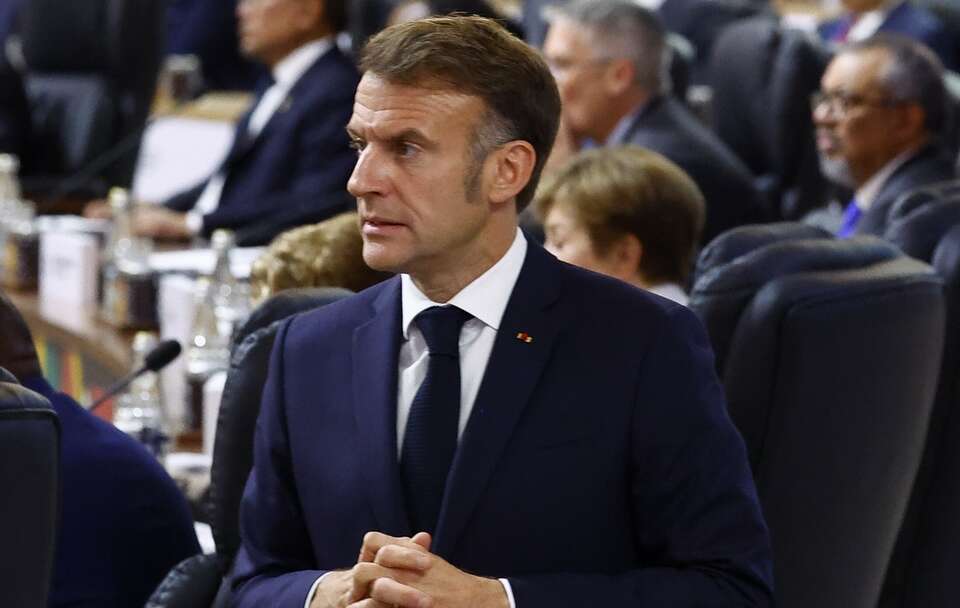
House Strips Reconciliation-Ineligible Provisions From 'Big Beautiful Bill’ In Procedural Vote
The House of Representatives on Wednesday approved a procedural resolution to strip provisions out of the House-passed One Big Beautiful Bill act that would make it ineligible for a filibuster-proof vote in the Senate. Why they were in there is anyone’s guess.
 The U.S. Capitol building in Washington on May 22, 2025. Madalina Vasiliu/The Epoch Times
The U.S. Capitol building in Washington on May 22, 2025. Madalina Vasiliu/The Epoch TimesThe resolution passed in a 213–207 vote along party lines, which changes the vote without requiring yet another vote on the full package.
The most notable change was the removal of a planned crackdown on the „employee retention tax,” which Republicans were eyeballing as a source of more than $6 billion in savings. They also scrapped $2 billion in funding for DoD intelligence programs and approximately $500 million set aside for missile development.
As The Epoch Times notes further, the changes to the mammoth tax and spending bill were included as part of a vote on another rule that would allow leadership to bring a vote on a $9.4 billion rescissions package on June 12.
Rep. Thomas Massie (R-Ky.) was critical of the approach, writing in a post on X that the rule “changes the text of [the One Big Beautiful Bill Act] after it already passed the House. Sneaky!”
The approach may have headed off a more intense showdown between House Speaker Mike Johnson (R-La.), who was looking to force greater changes to the bill, and members in the Republican conference, as some were dissatisfied about aspects of the original legislation passed by the House for its lack of serious cuts to spending.
The changes seek to align the bill with the rules of the reconciliation process in the Senate, where the Byrd Rule places significant limits on what can and can’t be included in a reconciliation bill. The rule was adopted in 1985 to limit the ability of either party to use reconciliation bills, which aren’t subject to a filibuster, for simple policy ends.
Senate Parliamentarian Elizabeth McDonough, who enforces the upper chamber’s rules, said the provisions stripped from the bill were flagged as problematic.
Had they not been nixed from the bill, it would have been declared ineligible for passage without a filibuster vote, which would have required that Republicans get Democrats’ help to pass the legislation.
Some Democrats urged Republicans ahead of the vote to use it as an opportunity to stall progress on the bill.
House Minority Leader Hakeem Jeffries (D-N.Y.) acknowledged that most of the changes to the tax bill were technical corrections but he said the vote also gave Republicans who have expressed concern about the bill a chance to stop it.
“Now you have a second chance to actually stop this one big, ugly bill and the provisions you disagree with,” Jeffries said.
House Rules Committee Ranking Member Jim McGovern (D-Mass.) also urged Republicans to reject the changes in a June 10 letter.
He specifically cited prohibitions on the bill against regulation of artificial intelligence by states for ten years, provisions restricting federal judiciary contempt orders, the termination of Inflation Reduction Act energy tax credits, its impact on the national debt, and the eligibility requirements for able-bodied adults who receive Medicaid and the Supplemental Nutrition Assistance Program (SNAP).
Tyler Durden
Thu, 06/12/2025 – 08:45

 5 miesięcy temu
5 miesięcy temu











